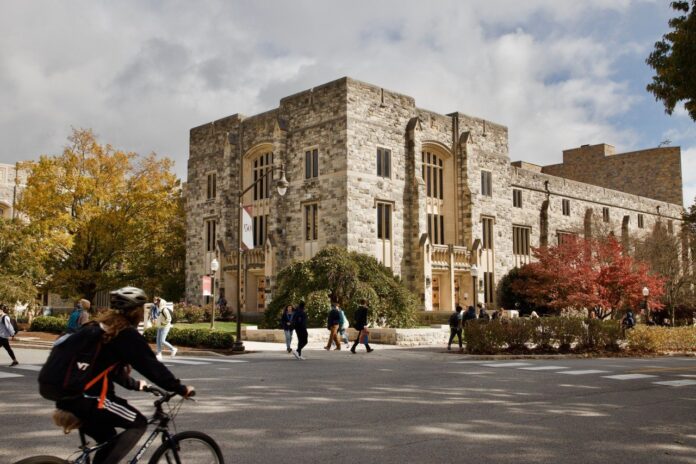The Virginia Research Libraries Group crafted this statement in response to the White House Office of Science Technology Policy’s Aug. 25, 2022, memo requiring all federal agencies to create policies to facilitate public access to federally funded research articles and data.
Virginia’s public academic research libraries at the University of Virginia, Virginia Tech, Virginia Commonwealth University, William & Mary, George Mason University, James Madison University, and Old Dominion University welcome guidance recently released by the White House Office of Science and Technology Policy (OSTP) that will make taxpayer-funded research immediately available at no cost to the public. The Aug. 25, 2022, OSTP memo Ensuring Free, Immediate, and Equitable Access to Federally Funded Research requires all federal agencies to create policies to facilitate public access and eliminate any waiting period for access to articles and data resulting from federally-funded research.
The policy changes will take effect no later than Dec. 31, 2025.
In particular, we welcome each of these key aspects of the new federal policy:
- It covers all federal agencies and departments, an expansion from the 20 agencies covered under the 2013 policy.
- It calls for data underlying all published research conclusions to be made immediately available.
- It extends the previous policy’s original scope beyond research articles to include peer-reviewed book chapters, editorials, and conference proceedings.
- It calls for research publications to be machine-readable so they are more useful to researchers and the public through text and data mining, computational analysis, and other technologies, as well as through assistive technology.
- It calls for the use of persistent identifiers that make it easier to find and connect research outputs, increasing the discoverability and impact of research.
As vocal advocates for increasing public access to research, we believe these policy steps are key to advancing knowledge for the benefit of society. The American people fund billions of dollars of research each year, and the results of that research should be immediately available to anyone who needs it. The OSTP memo promises to finally align public policy with this simple insight.
An invaluable expanse of publicly funded research will be available at no charge, searchable by anyone with an internet connection, and easily applied to create policy or respond to an emerging challenge. Society will be better equipped to respond to the next health emergency or environmental crisis, or more easily build upon the latest discoveries in medical research, because this research is at their fingertips.
Of course, this guidance and subsequent policy changes may require some researchers to reconsider the ways they think about publishing their research. And immediate free public access to publicly funded research may lead to changes in the scholarly ecosystem that we can’t fully predict. Nevertheless, we are committed to the vision of public access, and we will work with researchers, as partners, to bring it to life. We continue to build the expertise and resources to help researchers navigate current and future policies. Through our existing strong relationships and in partnership with VIVA, Virginia’s academic library consortium, we can also collaborate across the commonwealth to increase the impact of publicly funded research conducted at Virginia’s universities.
For close to two decades, the library community and other advocates for open scholarship have lobbied for open access to research and scholarship. We have acted locally to develop open repositories so the research has broad readership and a global impact. Faculty employed by Virginia public institutions can help us advance open principles and prepare for these changes by self archiving their work and taking full advantage of the open repositories on our campuses.
This memo is not a culmination of our efforts, but a major milestone. There is more work to be done in ensuring free and equitable access to knowledge.
We welcome the challenge.

